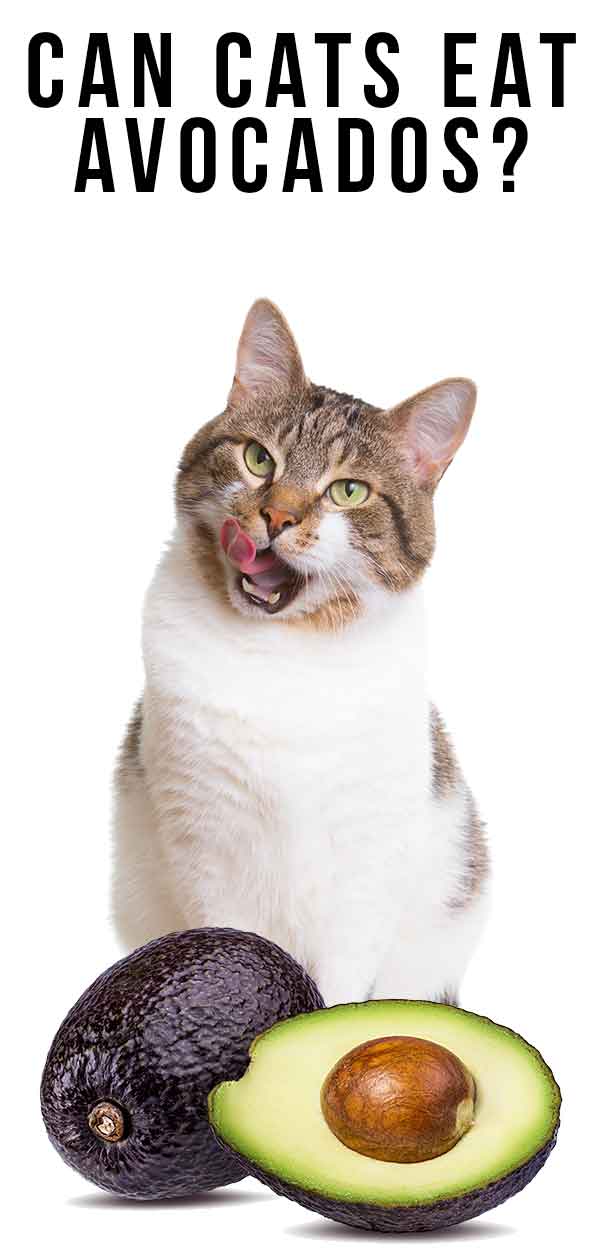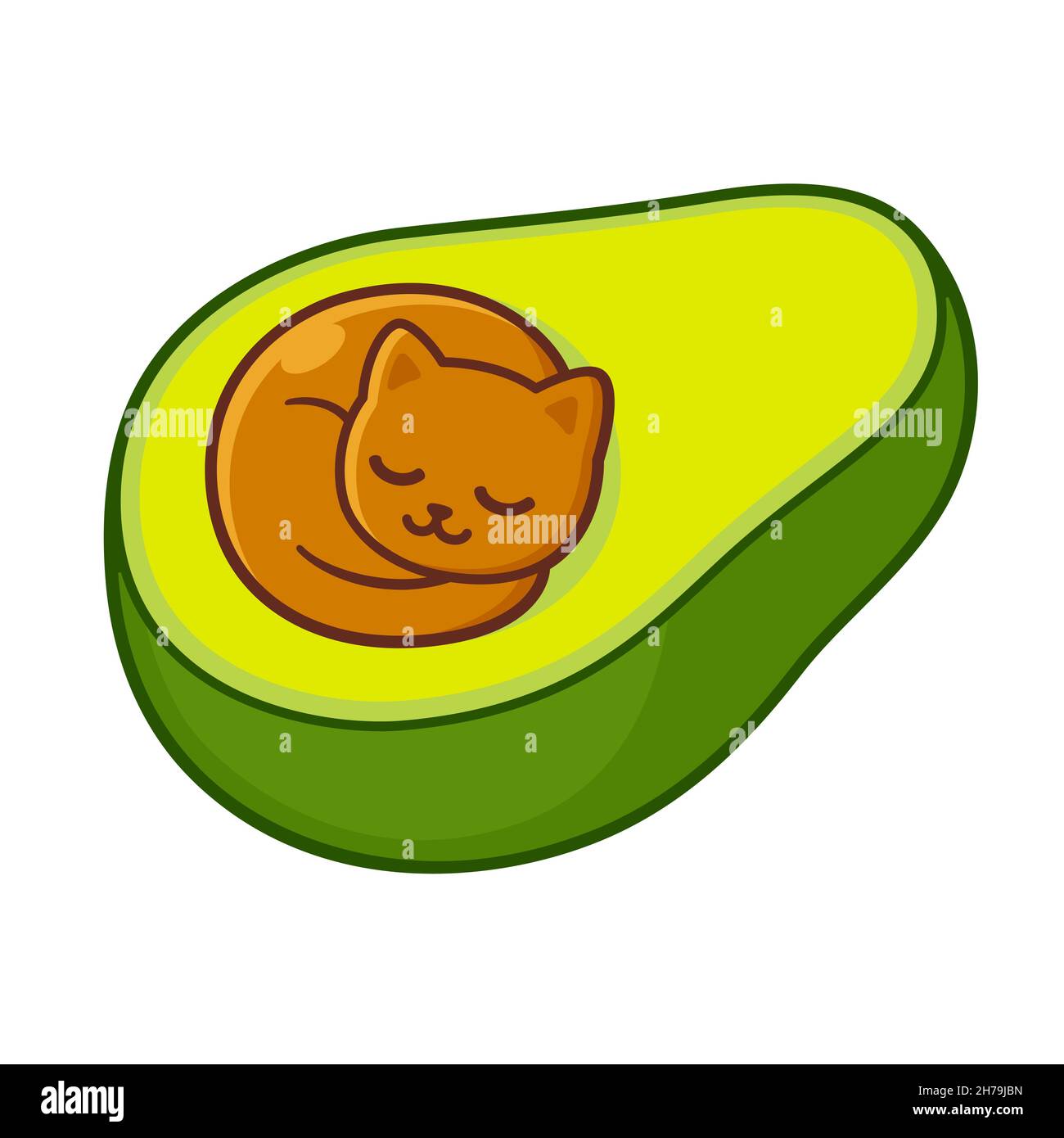
Can Cats Eat Avocado? What You Need To Know! The Canine Buddy
So can cats have avocado? Is it a safe food for our four-legged family members? What should you do if your cats ate an avocado? And, if so, how much avocado is enough, and how much is too much?

Is this an avocado or a pear? 🥑 🍐? in 2020 Baby cats, Cute cat memes, Cute animals
The Role of Smell in Feline Food Preferences. Cats have an extremely sensitive sense of smell, and this plays a huge role in their food preferences. Some cats may be attracted to the scent of avocado because its aroma is similar to the smells that cats associate with their favorite foods. Additionally, cats who are more sensitive to smell may.

Here is my cat considering eating an avocado. animalslookingatfood
No, your cat should not eat avocado. Even though the delicious fruit has many wholesome ingredients for humans, avocados contain toxins that harm cats, dogs, horses and birds. Larger quantities of avocado—as well as the skin, leaves and pit—can be harmful to your pet. Contact your veterinarian immediately if you suspect your cat has.

Can Cats Eat Avocado? Wise Kitten
Since avocado skins and seeds are known to contain persin, and contamination of the fruit is also possible, avocados are classified as mildly toxic to cats, according to Pet Poison Helpline. If your cat enjoys avocado, feeding small pieces (no more than 15g) of ripe fruit is unlikely to be harmful.

Can Cats Eat Avocado? 3 Benefits & Precautions Revealed!
Avocado toxicity can cause serious signs in birds such as: weakness, depression, feather pulling and agitation. With larger exposures we can even see more severe symptoms such as respiratory distress and edema. But the biggest concern for birds is cardiovascular damage, and some ingestions may even be fatal. Horses, donkeys and ruminants like.

"Avocado Cat. Minimal photo collage art" Sticker by JenyaPo Redbubble
The stems, leaves, rind, and pits of some avocado (like the Guatemalan variety) are toxic to cats. Older cats and kittens may simply not be able to digest avocado very well and so can have a stomach issue around it. And some cats may simply not have a good reaction to it, period, causing itchiness, swelling, vomiting, and diarrhea.

Cats eating an avocado YouTube
Cats cannot eat avocado for three reasons: High fat content: avocados have a high fat content that can promote the onset of obesity and other related diseases, such as hepatic lipidosis, pancreatitis, diabetes, etc. Contains persin: both the fruit and the plant of avocados contain person, a substance that is toxic to cats and other animals.

Can Cats Eat Avocado? All You Need To Know
Quick recap. Avocados are mildly toxic to cats. You're unlikely to see any signs of toxicity if your cat eats a small amount of avocado. Monitor your cat for signs of a reaction. Avocado trees also contain persin, which is mildly toxic to cats. Avoid feeding your cat guacamole, which often contains other ingredients that are toxic to cats.

Can Cats Eat Avocado?
1. Healthy Fats: Avocado contains healthy monounsaturated and polyunsaturated fats, which, in appropriate amounts, can be beneficial for skin and coat health. 2. Vitamins and Minerals: Avocado has several essential vitamins and minerals. However, cats get most of their required nutrients from their primary meat-based diet. Risks: 1. Persin Intake:

Can Cats Eat Avocado? 3 Benefits & Precautions Revealed!
Dr. Lauren Demos Veterinarian, DVM The information is current and up-to-date in accordance with the latest veterinarian research. Learn more » Click to Skip Ahead Can Cats Eat Avocadoes? Risks & Consequences Safer Alternatives When to See Your Vet Avocado is a superfood, so it must be super to feed cats, right? Wrong.

Can Cats Eat Avocado? Is Avocado Healthy to Cats? Cooper Pet Care
There is no definitive answer to how much avocado is harmful for cats. Plus, the amount may differ from cat to cat. In most cases, if a cat consumes a lick or small amount of avocado, they're unlikely to experience negative effects. If you suspect your cat has ingested avocado, monitor them closely for signs of distress or illness.

Cute Avocado Cats Sticker Art Tumblr Freetoedit Avocat Fun Transparent PNG 681x940 Free
The answer is: No. The health benefits we are getting from the yellow-green meat of an avocado is a different story for cats. According to the Pet Poison Helpline, avocados contain a toxin called Persin. If a dog or cat eats Persin, the effect is not life-threatening but potent. Here are signs to watch out for, according to PPH: Vomiting Diarrhea

Can Cats Eat Avocado? 3 Benefits & Precautions Revealed! (2022)
Avocado tops a list of super foods for humans because it's chock-full of antioxidants, fiber, magnesium, healthy fats, and vitamins B6, C, and E. Cats benefit from nutrient-rich diets, too, but that doesn't mean guacamole and avocado toast should be a regular part of our diets. Avocado flesh (also called meat) is safe for cats to eat.

Can Cats Eat Avocado or Should They Stay in The Fruit Bowl?
Carefully peel the avocado skin, remove its pit, and cut it into very small pieces. Feed it directly to your cat or place it on top of their regular food. One tablespoon or about 10 grams should be the limit (Make sure you divide that into tiny little pieces). No Guacamole - Guacamole may contain ingredients like garlic and onions, which can.

Can Cats Eat Avocado? All You Need To Know
The good news is that cats can eat avocado flesh! The toxin in avocado, 'persin', is not very toxic to cats. Persin is a natural fungicide produced by the avocado plant. It occurs in high quantities in the plant itself, as well as in the avocado skin and pit. Persin is causes vomiting and diarrhea in cats if eaten in high quantities.

Avocado with cat design Stock Vector Images Alamy
Avocados are considered toxic due to the presence of persin, which is in the leaves, bark, seeds and the soft fruit (edible part). "Although not highly toxic, it can cause damage to the heart and mammary glands and should not be offered to cats because of this," Dr. Liff told The Dodo.